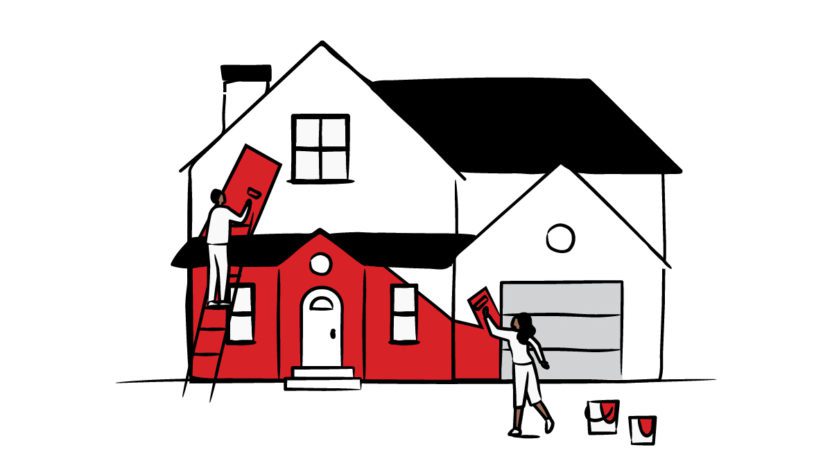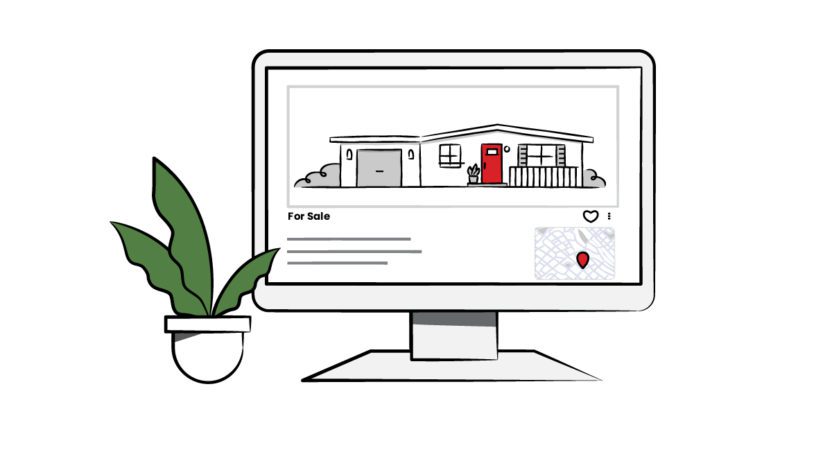Here’s How Long It Takes To Sell a House Today or Speed It Up: MABA Massachusetts HomeBuyers RealEstate
With home prices hitting record highs across the country, plenty of homeowners may decide the time is ripe to sell. So how long does it take to sell a house now? In today’s red-hot seller’s market, homes are getting snapped up by buyers faster than ever. Yet even in this best-case scenario, it will take at least a month, more typically three months, for sellers to prepare their home and close the deal. If extensive repairs are needed or your property is not priced or presented properly, it could take longer still.
“In our Spring 2022 Home Sellers survey, two in five recent sellers reported that it took more time than expected,” says Danielle Hale, chief economist for Realtor.com®. To help home sellers know what to expect, here are some of the steps to sell a house and how long they typically take. We’ve also included what can slow things down and how to speed things up if you’re in a rush. Whether you plan to sell soon or are just curious about how long it will take, this timeline will help you prepare and plan accordingly.
Home-selling timeline: Ten steps to sell a house
- Make renovations/repairs
- Find a listing agent
- Figure out how much your house is worth
- Declutter/stage your space
- Put together your listing with description, photos, video
- Hold home showings/open houses
- Wait for an offer (or offers) to roll in and negotiate the best deal
- Accept an offer, and wait for the home inspection/appraisal
- Close the deal
- Move out
1. Make renovations/repairs

Realtor.com
Average time: Two weeks to several months: For the typical home seller, it takes about two weeks to a month to get a home ready for sale, though this step is hugely variable. It really depends on the condition of your home, how much you want to invest, and how quickly you need to move. But in case you’re tempted to cut corners, know that it pays, literally, to do some presale prep.
“Smaller-scope repairs can take as little as a day or two and would just require you finding a handyman that you trust to get the work done,” says Nathaniel Hovsepian, real estate investor and founder of The Expert Home Buyers. “Larger repairs or upgrades can take weeks or even months, and would require you to devote some more hands-on time to finding a contractor you trust and then staying on top of them to make sure the work is getting done.” According to the Realtor.com 2022 report, sixty percent of homeowners planned repairs or updates to their property prior to listing it for sale.
Landscaping topped the list (ninety four percent), closely followed by minor cosmetic updates such as new light fixtures or faucets (eighty eight percent) as well as touch up paint (eighty seven percent). Many survey respondents also undertook larger repairs such as replacing major systems like HVAC and hot water (eighty five percent) and redoing the roof (sixty eight percnet). Obviously, more involved jobs like that will take longer than small face lifts.
One way to get an idea of what you should repair before putting your property on the market is to get your own independent pre-inspection by a home inspector. “Every homeowner looking to sell their home should obtain a pre-listing inspection to get their own report card of the condition of their home,” says Jason Gelios, author of “Think Like a Realtor” and a real estate agent with Community Choice Realty in Southeast Michigan. “This would give a home seller specific information as to what needs to be addressed in an effort to not be surprised when a potential homebuyer has their own inspection on the home,” adds Gelios.
2. Find a real estate agent

Realtor.com
Average time: Two to ten days
“Finding a listing agent can be as quick as a phone call, and 82% of sellers only talk to one agent before moving forward with a listing agreement,” says Elizabeth Sugar Boese, a real estate investor and agent with Coldwell Banker in Colorado. However, she does not suggest this tactic. “Picking the right listing agent takes time,” she explains.
“A deliberate search is warranted for the largest transaction in most people’s lives, one with a substantial economic impact and a high degree of complexity that requires experience and specialized skills,” adds Bruce Ailion, an attorney and real estate agent with Re/Max in Atlanta. “The right way is to meet with three to five agents, evaluate their training and experience, understand their marketing plan, and assess their abilities and recommendations,” says Ailion.
Ideally, you will want your listing agent to visit your home so the pro can size it up. You could even find a listing agent before doing repairs to get the agent’s take on what really requires an update and what can slide in today’s market. All in all, an agent is your most trusted sounding board who could help you save time and money throughout the whole home-selling process, so it’s wise to shop around and make sure you find the right professional.
___
Watch: Ten Questions You Should Ask To Find the Right Listing Agent To Sell Your Home
___
3. Estimate how much your house is worth

Realtor.com
Average time: One hour to two weeks: Figuring out how much your house is worth is an important step that should not be rushed. To start, you can check one of many automated valuation models, or AVMs, for real estate available online. For example, on Realtor.com/myhome, you’ll find several estimates based on industry-leading AVMs.
However, pricing your home correctly is best done with your listing agent’s expertise, as the pro will triangulate via comparable properties in your area (also called comps) to get a real feet-on-the-ground idea of what your home will sell for in this current climate.
“An automated valuation model is no substitute for the expertise of an agent,” says Hale. “Once you’ve found your agent, this is a key step in the process and an area for them to showcase their expertise on the local market and the best strategy for getting your home sold.”
4. Declutter/stage your home

Realtor.com
Average time: One hour to one week per room
According to the Realtor.com report, two-thirds of sellers cleaned and decluttered before listing their home, since making a property look its best will increase its appeal to homebuyers. This is not a step to skip. Yet decluttering can take time, especially if you’ve been living someplace for many years. “For decluttering, it takes an average of one week per room to declutter a house for a move-out,” says real estate expert Joshua Blackburn, director of design and construction for Evolving Home. Ideally, you should start well before you ever decide to sell.
“Give family members ample time to go through their belongings mindfully, as decluttering can be a sentimental journey for some and it helps transition homeowners to emotionally move out of the house they are about to sell,” says Blackburn. Home staging, on the other hand, can be done fairly quickly. Blackburn says an average-sized house typically takes between five to 10 hours to stage, but that might extend to three days depending on the level of detail. “The larger and emptier the home, the longer it takes to stage because it requires more effort to fill up the space,” he says. Some owners hire staging companies specifically for this purpose.
While not all sellers choose to stage their home, it is a proven method for reeling in buyers that can help you sell your home fast—and for top dollar. “The only way to get multiple offers to drive up the price of your home is to present your home in such a way that everyone wants to live there,” says Boese. “Staging is about selling the dream of a lifestyle. In real life, we have cluttered countertops, toys strewn around the floor or piled up in a corner, and haphazard photos of family and friends on the walls. That’s not the dream; that’s reality. Staging provides a dream of what life could be like in that space. Staging sells!”
5. Create your listing

Realtor.com
Average time: One hour to two weeks
As with many steps in the home-selling process, putting together your listing is in the hands of your real estate agent. “A reputable listing agent is going to have an in-house camera crew that will come take pictures of your house and even do video walk-throughs and flyovers with drones in some cases,” says Hovsepian. “High-volume [agents] will usually be a few days out to get their camera crew scheduled, but you will be able to coordinate this ahead of time as you are seeing the repairs and staging of your house come toward completion.” One of the things that could slow this step in the process is the availability of the photographer and/or videographer. “Although I have seen these professionals come out within a week or two of being notified,” says Gelios.
6. Hold home showings/open houses

Realtor.com
Average time: One to four weeks
Once a property hits the market, a swarm of home showings can occur, many times within the first day or week. “While a home seller often has total control over the scheduling of showings on their property, they should make every effort to be flexible with potential homebuyers looking to view their home,” says Gelios. “I have witnessed homes sitting stagnant due to all these crazy demands like only allowing showings two hours a day, not being flexible to last-minute showings, or any other factor that causes homebuyers to skip viewing the property.”
Generally, tweleve to twenty four hours’ notice is required for a showing, to make sure you and your pets are out of the house and any valuables are locked up for safety. Showings will generally take fifteen to thirty minutes. “There’s not really a way to speed up or slow down this process, as you are working with the buyers’ time frames,” says Hovsepian. Holding an open house should be at minimum one week after the home is listed, or right when the property hits the market, and you need to give buyers advance notice that it’s taking place.
7. Wait for an offer (or offers) to roll in and negotiate the best deal

Realtor.com
Average time: Two days to a month or more
Every market is a little bit different on how long it takes for offers to come in. “In this hot seller’s market, entry-level homes may have multiple offers submitted by the end of the first weekend on the market,” says Boese. “Luxury homes take a little longer.” Once you receive an offer, there’s no need to accept it on the spot. “We usually advise giving your house at least seventy two hours, or a weekend, on the market in order to get as many eyes on it as possible before accepting any offers made to you,” says Hovsepian.
The reason to hold off is an even better offer may be out there, if only you give it time to roll in. The most common amount of time given for a home seller to respond to an offer is twenty four to forty eight hours. However, “When you have a shortage of homes on the market like we are seeing in 2022, the deadline given to the seller is more relaxed, because buyers really don’t have a choice,” says Gelios. Still, “I would recommend every home seller should provide an answer back within forty eight hours, unless multiple offers are received, which could mean a deadline is set for all buyers to provide their highest and best offer.”
8. Accept an offer and wait for the home inspection and appraisal

Realtor.com
Average time: Three weeks: Once you have an offer you like, accepting it can be done quickly. “It usually takes about an hour or so and just entails you signing on the dotted lines of the offer you’re accepting, and then submitting it to a title company or closing attorney, depending on how your state conducts this step,” says Hovsepian. Next up? A buyer may conduct some due diligence in the form of a home inspection and home appraisal.
“The most common period of time written in a purchase agreement for a home inspection to be conducted is seven days,” says Gelios. “This is from the time the offer has been signed to when the homebuyer has to make a decision on moving forward or not.” If your buyer is financing the property purchase with a mortgage, the appraisal will come next, which might take another two or more weeks. “In some states, appraisals happen rather quickly, but in Colorado, where I work, there is a massive shortage of appraisers and about a three-week turnaround time,” says Boese.
This waiting period can cause some impatience among home sellers, so if you’d prefer to close faster than that, it would help to let your listing agent know upfront that you prefer a faster close with fewer contingencies. “They can speak with buyer’s agents to convey your preferences,” says Yifan Zhang, founder of the host-to-own company Loftium. “Many first-time sellers don’t know this, but having clear communication via your agent can make a huge difference in shaping the offers you receive.”
9. Close the deal

Realtor.com
Average time: ten to forty five days: The main thing holding up closing on a home is the lender. Most buyers will require financing, and it might take time to get a lender’s representative to the closing table. If, on the other hand, you’re lucky enough to have an all-cash buyer, a deal can close fairly quickly, in ten to fourteen days. “A cash sale can close faster and is more certain than a financed sale,” says Ailion. If closing quickly is a high priority and an all-cash offer comes forward, you might want to take it.
Otherwise, you’ll have to wait. “On the whole, a home seller should expect the whole process of selling a home to take about thirty to forty five days once an offer has been accepted,” says Gelios. “When it comes to the final authorization, the lender will state the file is ‘cleared to close,’ meaning both parties can schedule a date and time to sign the final documents.”
10. Move out

Realtor.com
Average time: thirty days: The most common negotiated time frame to move out of a property, once transferred to the buyer at closing, is thirty days. Some home sellers will request more time (e.g., fourty five or sixty days). The seller can also ask for a postclose occupancy agreement from the buyer, where the seller reserves the right to stay in the home after the closing either for free or by paying rent. “This is common in competitive housing markets, and gives you the advantage of having the closing funds first while still being able to remain in your home while you house hunt,” says Zhang.
The post The Complete Home-Selling Timeline: Here’s How Long It Takes To Sell a House Today—or Speed It Up appeared first on Real Estate News & Insights | realtor.com®.
Selecting the Right Homebuyer's agent
 Unlike most other real estate agents, a MABA home buyer's broker never represents both a buyer and seller in the same transaction so you never have to worry whether a MABA agent is really looking out for your best financial interests. A MABA buyer's agent acts as your advocate, real estate educator, advisor and negotiator, always loyal to you and dedicated to helping you find and buy the best home with the best terms at the price and showing you which homes to avoid along the way.
Unlike most other real estate agents, a MABA home buyer's broker never represents both a buyer and seller in the same transaction so you never have to worry whether a MABA agent is really looking out for your best financial interests. A MABA buyer's agent acts as your advocate, real estate educator, advisor and negotiator, always loyal to you and dedicated to helping you find and buy the best home with the best terms at the price and showing you which homes to avoid along the way.
Fewer than one percent of the agents and brokers in Massachusetts meet our high standards.
Whether you are ready to buy now or just beginning your home buying journey, click here to choose a Great Buyer's Agent to answer all of your home buying questions!
"Thanks to our MABA agent's knowledge, analysis, and guidance, when we found our house, we knew it was the house for us. During the negotiation, we felt confident and secure."
Article From: "Kimberly Dawn Neumann" Read full article
Get Started with MABA
For no extra cost, let a MABA buyer agent protect your interests



